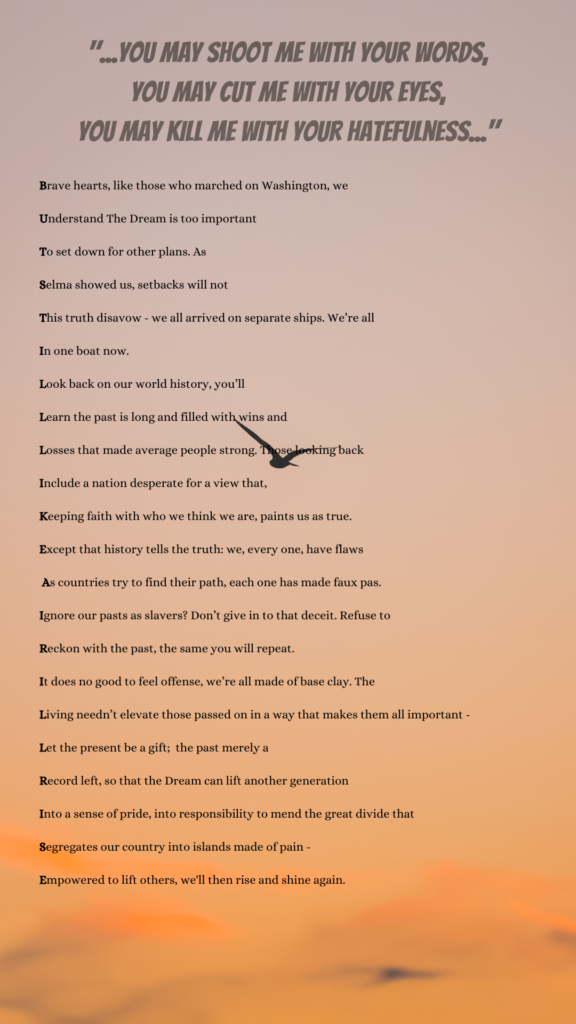Greetings! Welcome to another Poetry Peeps adventure on Poetry Friday!
 You’re invited to our challenge in the month of May! After such a big month for National Poetry Month, we’re taking it easy for now. Our simple task is to write a poem with the theme of string, thread, rope, or chain. Any poetic form, rhymed or unrhymed, but we’re including one of those four items. Plotting? Good! You’ve got a month to string your line(s), then share your offering on May 27th in a post and/or on social media with the tag #PoetryPals. Can’t wait to see what you come up with!
You’re invited to our challenge in the month of May! After such a big month for National Poetry Month, we’re taking it easy for now. Our simple task is to write a poem with the theme of string, thread, rope, or chain. Any poetic form, rhymed or unrhymed, but we’re including one of those four items. Plotting? Good! You’ve got a month to string your line(s), then share your offering on May 27th in a post and/or on social media with the tag #PoetryPals. Can’t wait to see what you come up with!
This month the Poetry Peeps wrote poems in imitation of Taylor Mali. For Laura, that meant this poem – short(ish) and sweet. Tricia explored her ideas here. Sara’s meta poem ON the poet is here, Cousin Mary Lee enfolded climate greening into her poem, Liz’s project, plus a bonus poem is here, and Andi’s popped in here. More Poetry Peeps may pop in with more words and thoughts as the weekend continues, so stay tuned. I may be very slow doing the roundup (as in finishing it next week), since I’m away from my usual haunts (and time zones) so bear with me.
I started out with the best of intentions to flatter poet Taylor Mali by imitating “Totally Like Whatever, You Know?” Alas, the longer I spent with it, the less I found flattering to say. Published in 2002, soon after the 1998 “Ebonics” conversation the talk show circuit, this poem is reflective of the social critics of that time, which is to say it hasn’t aged well. Mali’s mocking contempt echoes still of American society’s knee-jerk tendencies to mock and belittle the young, especially young girls, for the way that they speak, act, the media they consume, the bands they love, and the clothes they wear. When devaluing fully 51.1% of the population becomes automatic, misogyny persists, and follows girls into adulthood. More importantly, it leaves a mark. And men aren’t the only people who belittle and begrudge the young; it’s an American past time, which is why this poem so needled me.
I remember running into my 8th grade English teacher as a college student. She quizzed me on my activities and my GPA, and then, as I was proudly telling her my news, she interrupted. Reaching forward, she fiddled with my collar, smoothing it. “You know,” she said in a low, confiding voice like she was revealing a secret, “You’d sound so much smarter if you didn’t say ‘um, okay’ quite so often.” Well, that was me told that I wasn’t up to her level! Rather than enjoying my weekend home, I spent the rest of the time listening to myself, wincing at each “um” and “okay” and wondering desperately how people ever learned to change their speech.
I look back on that incident and seethe.*
My NPM project this year was sticky-note proverb poems. They are proverb-based and SHORT, but Taylor Mali doesn’t lend himself to short, so today I’ve creating two poems, first, the freestyle, unrhymed imitation (not my favorite style; feel free to suggest revisions in the comments), using the words of consent and consensus which are so often dismissed, and second, a sticky-note sized distillation. Additionally, today’s poem calls for a new proverb, one I’ve just made up. It is:
“Wisdom celebrates variation; not every difference suggests flaws.”
um, okay
Okay, but have you noticed
how it is somehow A-okay fine
for them to get right in your face
straighten up your collar and say
“right, if you would just -” and
okay, you knew you weren’t up to par –
yeah, you couldn’t pass as perfect
or more than okay, but who is?
Okay, so, have you noticed
the ground between us
is like potholes and mountains,
it’s that uneven, which is like,
fine, whatever
but what makes them think
the place they’re standing is
always the high ground, right?
Okay, but had you noticed
how they steal your words when they
crush your voice, grind words into pulp,
when they smother your spark
had you noticed why? they silence you –
like you’re just a piece of work
right, but if they would just,
back off, you could work out
making the pieces
whole, right?
Okay, so you had noticed
that consensus creates strength, that two heads
are better than one? so, okay you seek approval –
yeah, sometimes you ask permission –
So? you don’t know if you’re allowed
to take up space, to speak
aloud, so you rehearse
your sounds, right?
and you check your strengths
’til you know them
by heart.
Okay, so had you noticed
your flex, your stretch, how strong
you’ve grown? they did not, which is like,
fine, whatever –
you’ve blown past their
okay

bloom
okay
so, it’s your space
send roots into the earth
shout “I’ve arrived! make here the place
you grow
Want more poetry? Poetry Friday is hosted today at Jone’s place.. Hope you have a wonderful weekend.
*I taught school, too. I recognize that for some, the job is changing the world through their students. But, I’d really rather leave the world unchanged than be remembered for the kind of casual cruelty that implies someone sounds/is stupid.










